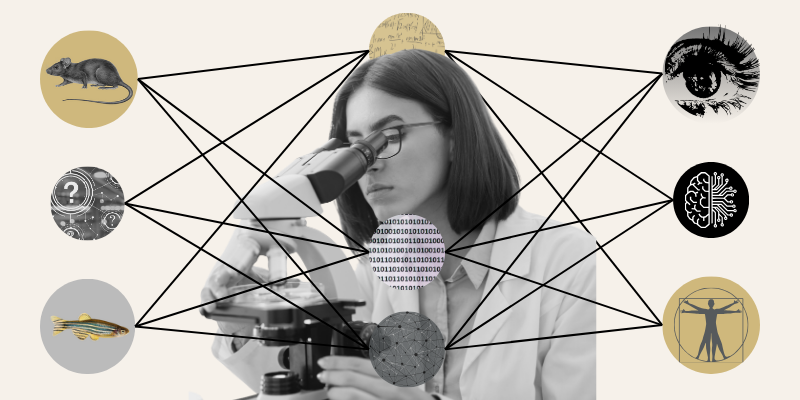Two junior faculty members in the Department of Biomedical Informatics (DBMI) have been named 2024 Translational Research Scholars through the Program to Advance Physician Scientists and Translational Research (TRSP), allowing the bioinformaticists to continue and expand investigations into their specialties.
Joanne Cole, PhD, and Janani Ravi, PhD, both assistant professors in the DBMI, will each receive $300,000 over the next four years to put toward their research. They’ll also have access to career development resources and mentorship through the award. Cole will continue her work on the genetics of food preference and nutrition, while Janani will expand her lab’s work by developing computational methods to better understand host responses to infectious diseases.
In all this year, the program named five scholars across the University of Colorado School of Medicine who will find new and innovative ways to apply their data-driven research in the medical field.
Put to the taste
Four years after identifying 814 regions in the genome that are associated with dietary intake, Cole is ready to dive even deeper into the connections between genetics and food preference and intake.
With the TRSP award, she plans to develop a food preference survey with the Colorado Center for Personalized Medicine Biobank and test for associations with sensory genetic loci. With that, she’ll lead a human taste study connecting genotype to sensory perception and whether a person prefers a specific food.
“This is an exciting area of research,” Cole says. “If we can use flavor and the reward pathways connected to flavor as a mechanism to help people alter their eating behaviors, maybe we can establish better long term personalized nutrition guidelines.”
Eating behavior is influenced by several different factors, but often consumers say it’s a like or dislike of a flavor that drives their food choice. Cole hypothesizes that targeting flavor biology could help to improve eating behavior and nutrition at the individual level.
This genome-centered personalized nutrition could improve health across a range of diseases and conditions, she says.
For Cole, the award is a chance to apply her research in new ways.
“I’m a statistical geneticist on a computer all day, so I find it exciting that this award couples funding with mentoring and guidance in the transitional space,” Cole says. “I will be able to take findings born from big data and apply it into a personalized nutrition therapy and actually impact human health.”
Hosting new methods in fighting infection
Antimicrobial resistance is a growing problem around the world, but instead of continuing to develop new drugs to kill infection, Janani, a computational biologist, and the members of her lab are looking at ways to better equip patients to fight infection on their own.
“We want to understand how the host responds to infectious disease and whether they can be given a drug that can help them fight the infection better,” Janani says.
The lab will leverage publicly available omics signatures from drugs and noncommunicable diseases to then discover targeted host-directed therapeutics. Janani’s work will initially focus on the potential of repurposing FDA-approved drugs to treat tuberculosis (e.g., heart disease-treating statins), but the framework is broadly applicable to understand host response to infectious diseases of all kinds, Janani says.
DBMI is a thriving and innovative environment for this research to take place, and the TRSP award continues to make it possible.
“We have the Colorado Center for Personalized Medicine right upstairs, the biobank, and the strength of the Human Medical Genetics and Genomics and Computational Bioscience graduate programs to enable this translational work,” Janani says. “Collaborating with these resources allow us to take the genomic layer and the transcriptomic layer and understand how different subpopulations — whether it’s sex, ancestry, age, geographical region, or something else — and their underlying genetic variants increase the predisposition to the disease and how they differentially respond to it. That helps inform how we can tailor targeted host-directed therapeutics, which is the translational piece to this award.”




.png)
